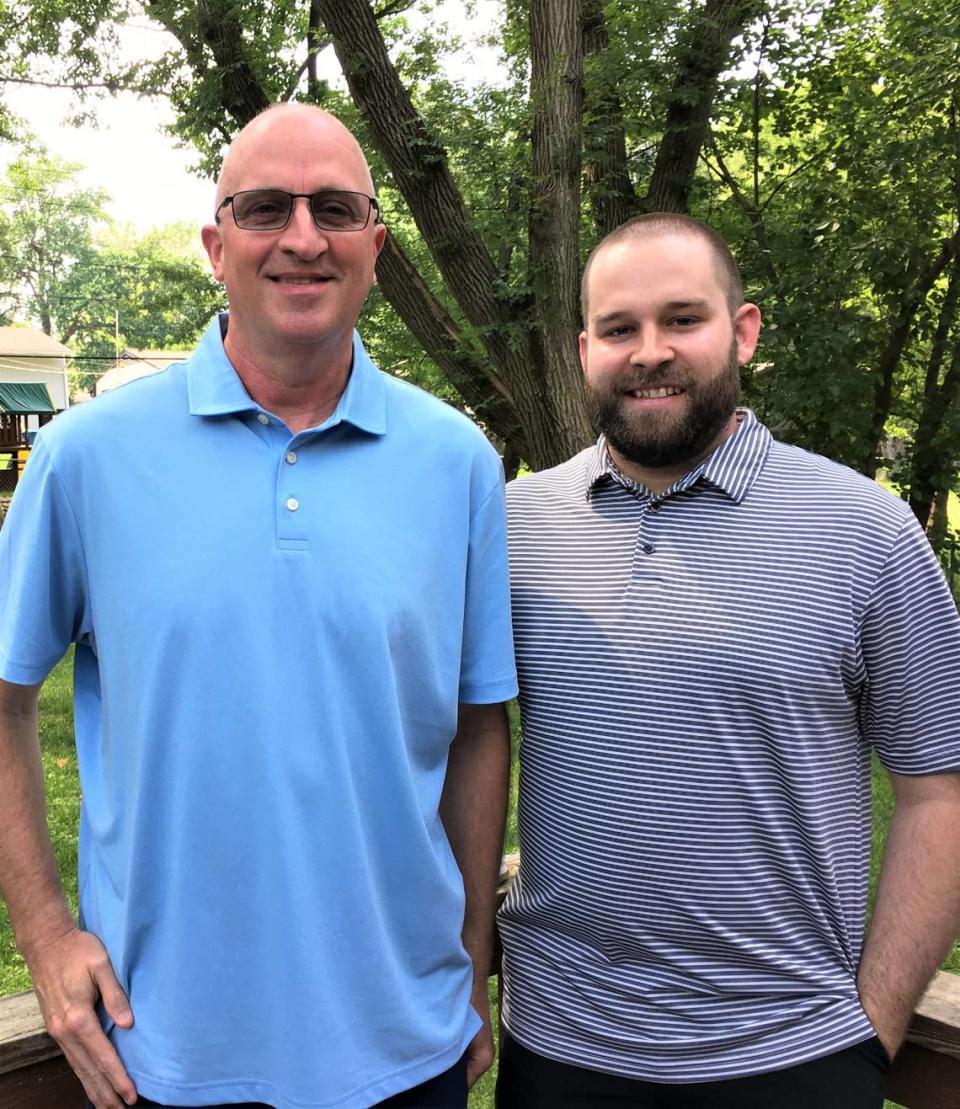Johnson County families focus on helping fathers with Alzheimer’s enjoy special day
Among the gifts he’ll receive for Father’s Day, Bill Dritlein is sure to get some sports memorabilia to add to his collection.
Dritlein has a curio case stocked with such mementos as a certificate for a hole in one, a George Brett-signed baseball, a Kansas City Chiefs helmet and athletic awards his grandkids have won.
“It’s his bragging bookcase,” said daughter Dana Nolte, 51, of Olathe. “He likes to share with the people where he lives.”
Bill was diagnosed with Alzheimer’s seven years ago.
In April, Dana and her sister Jamie Patton helped move their 75-year-old father into a memory care community in Overland Park.
“Celebrating Father’s Day can be bittersweet and challenging when dad is living with Alzheimer’s,” said Juliette B. Bradley, Kansas director of communications for the Alzheimer’s Association.
But the holiday can still be a meaningful and enjoyable occasion for families who focus on Dad’s preferences.
One of their father’s favorite things to do, Patton said, is to tell stories about that hole in one or the time he and his wife traveled to Maine. So Patton and Nolte are planning to give him the opportunity to do so at a family celebration in Olathe on Sunday.
His daughters say they’ve learned to be patient with him and realize that sometimes things that are said, if hurtful, are the disease talking.
“For a long time, he was very coherent,” Patton said. “He just repeated a lot.”
In the memory care community now, their dad is calmer and laughs more, the sisters said.

Craig Calcote, 57, was diagnosed with Alzheimer’s in 2020.
“Right now, most people would think there’s nothing wrong with me,” Craig said.
When he was diagnosed, he was working as a manager in Houston, Texas.
“None of us pictured this happening,” said Mason Calcote, 28, his son.
Earlier this month, Craig and his wife visited their son’s family in Prairie Village.
The diagnosis “has made us realize the importance of spending time together with the grandkids and not taking anything for granted,” Mason said.
In July, Craig and his wife are moving into a retirement community in the Houston area. His wife works, and moving will allow Craig the chance to be around others and participate in activities.
“Coming to terms with a diagnosis and the emotions that come with it may help an individual accept the diagnosis, move forward and discover new ways to live a positive and fulfilling life,” said Bradley of the Alzheimer’s Association.
The Alzheimer’s Association offers these tips to help families with Father’s Day celebrations.
1. Focus on what is enjoyable for Dad such as looking at family pictures, enjoying a favorite meal or watching a golf tournament on TV.
2. Keep it simple. A large group can be overwhelming. A small, quiet gathering may be preferable.
3. Connect virtually. Call Dad and invite other family members to join via FaceTime, Skype or Zoom. Add a slideshow with cherished family photos.
4. Don’t overdo. Sticking to Dad’s routine will help keep the day from becoming disruptive or confusing. Plan time for breaks away from noise and crowds.
5. Adapt gift-giving. Consider comfortable clothing, favorite foods, photo albums of family and friends, and recordings of his favorite music.
6. Join in. If Dad lives in a memory care community, join him in the events and activities planned for the day.
“Currently more than 6 million people in the United States are living with Alzheimer’s,” Bradley said.
June is Alzheimer’s and Brain Awareness Month and the association encourages individuals experiencing cognitive issues to schedule an appointment with their doctor.
“An early diagnosis provides a range of benefits, including access to new treatments that have shown to slow down the progression in the early stages,” Bradley said.
For more information, call the Alzheimer’s Association 24/7 Helpline at 800-272-3900 or go to alz.org/kansascity.

